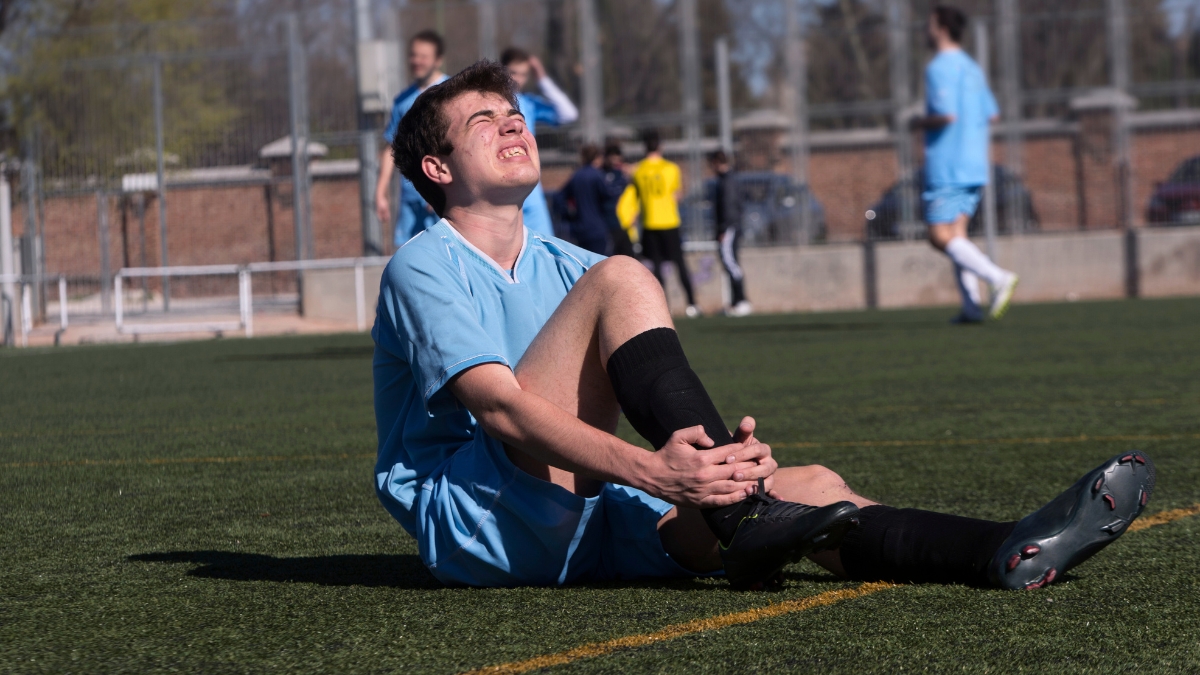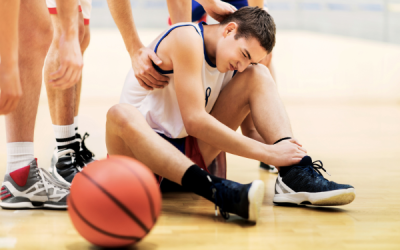Football is a high-impact sport that demands strength, agility, and endurance. While it offers numerous physical and mental benefits, the risk of injury is always present. At Tennessee Orthopedic Alliance, we frequently see a range of football-related injuries, from mild strains to more severe conditions requiring medical intervention. Understanding the most common injuries and how to prevent them can help athletes stay on the field and enjoy a long, healthy playing career.
Ankle Sprains
Ankle sprains are among football players’ most frequent injuries. They occur when the ligaments supporting the ankle are stretched or torn, often due to sudden twists, turns, or falls. A sprained ankle can cause swelling, pain, and difficulty in movement, making it challenging for athletes to return to the game quickly.
Preventing ankle sprains starts with strengthening the muscles around the ankle and improving balance. Stretching and strengthening exercises, such as calf raises and ankle circles, are excellent ways to build resilience. Taping or bracing the ankle during practices and games can also provide extra support, particularly for athletes with a history of sprains.
ACL Tears
The anterior cruciate ligament (ACL) is a crucial stabilizing ligament in the knee. Due to football’s rapid directional changes and frequent collisions, tears in this ligament are common. An ACL tear can be a season-ending injury and often requires surgery and months of rehabilitation.
Athletes can reduce their risk of ACL tears by incorporating exercises focusing on strength and flexibility in the hips, thighs, and hamstrings. Proper warm-ups before games and practices and concentrating on safe landing techniques when jumping can also help protect the knee from injury.
Hamstring Strains
Hamstring strains are another common issue for football players, especially those who rely on sprinting and rapid acceleration. This injury occurs when one or more of the muscles in the back of the thigh are overstretched or torn. A hamstring strain can range from mild discomfort to severe pain, potentially sidelining athletes for several weeks.
Focus on flexibility and strength training to prevent hamstring strains. Dynamic stretching before activity and strength exercises such as lunges and deadlifts can keep the hamstrings solid and flexible. Regular conditioning and avoiding overtraining can also minimize the risk of this injury.
Shoulder Dislocations
Football players, particularly those in positions that involve tackling or blocking, are susceptible to shoulder dislocations. This injury happens when the upper arm bone pops out of the socket in the shoulder, often due to a hard fall or collision. A dislocated shoulder is painful and can lead to long-term instability if not appropriately treated.
Strengthening the shoulder muscles and maintaining flexibility can help prevent dislocations. Shoulder-strengthening exercises such as resistance band workouts and rotator cuff exercises are efficient. Proper tackling and blocking techniques can also reduce the risk of this painful injury.
Concussions
Concussions are a significant concern in football due to the contact nature of the sport. A concussion occurs when a blow to the head or body causes the brain to move rapidly within the skull, leading to a range of symptoms from headaches to dizziness and confusion. Repeated concussions can have long-term effects on cognitive and neurological health.
While it’s impossible to eliminate the risk of concussions, players can reduce the likelihood of this injury by wearing well-fitted helmets and using proper tackling techniques. Coaches and players should also prioritize a safety culture, ensuring that any suspected concussion is treated seriously, with proper evaluation and rest before returning to play.
Prioritize Injury Prevention with Tennessee Orthopedic Alliance
Injuries are unfortunate in football, but they don’t have to be inevitable. Football players can significantly reduce their risk of joint injuries by focusing on strength, flexibility, and proper techniques. At Tennessee Orthopedic Alliance, we support athletes with expert care and resources to keep them healthy and performing their best. Taking proactive steps in injury prevention ensures a safer, more enjoyable experience on the field.




